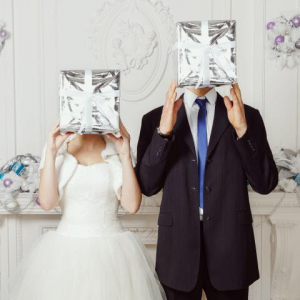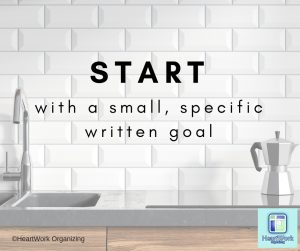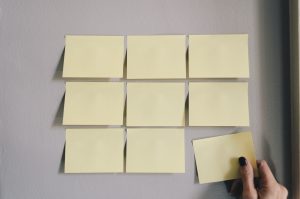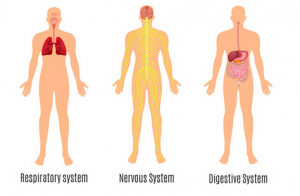
As an ADHD specialist, I frequently have the privilege of meeting couples where one partner has ADHD (or ADD). As they lead me on a tour of their home, it’s not infrequent that the spouse without ADD makes comments such as, “I don’t understand why she can’t keep this place tidy!” or “He’s attached to everything and refuses to throw anything out!”
I feel immediate compassion for the accused partner. Having ADD is challenging enough; living with someone who refuses to accept the diagnosis or has little understanding of the brain-based disorder adds another layer of difficulty.
I’m not a therapist but if given the opportunity, I like to point out the wonderful qualities of their ADD mate. Chances are, if you have ADD you possess a host of awesome qualities. Maybe you’re creative, a talented singer or writer. Perhaps an academic or a super successful salesperson. You probably have a wonderful, warm and bubbly personality which attracted your mate to you initially. Alas, as the years go by, the partner without ADD starts to focus on your lack of focus, disorganization, your tardiness or other weaknesses.
There are many well-written books on ADHD. If you’re reading this and the above scenario feels oh so familiar, I recommend my all-time favorite book, Delivered from Distraction by Edward M. Hallowell, M.D., and John J. Ratey, M.D. Hallowell (who has ADHD) focuses on the positive, on the huge potential of the person. I find his approach refreshing and helpful to both partners.
What if you’re still single and looking for love? Hallowell dedicates a whole chapter to describing what kind of mate is best if you have ADHD. Here’s a short excerpt that brings tears to eyes each time I read it:
“Someone who loves you for who you are. Someone who gets a kick out of you. Someone whose voice lifts when he/she hears it is you on the other end of the line. It is helpful if the mate can educate (him)herself about ADD and not take the blunders that the ADD mate makes personally or as if they were done on purpose. ADD is not an excuse, but it is a powerful explanation.”
As Valentine Day approaches (and at the risk of being too sappy) I share this poem (also from Hallowell’s book)
Treasured Friend
By Cherie Dawn Mills
You are my hope.
You meet me where I am and love me there—
not pushing, nor blaming, but only rejoicing
with me, or lending me your handkerchief.
You gently hold me earthbound in the blackness
of my fears, or during my endangerment from
flights of fantasy.
You do not fear the depths of my weakness,
nor the heights of my strength,
You ever see in me the wondrous possibilities
that my sins and sorrows and daily concerns
have caused me to forget.
Your love empowers me to give my love to others—
to mold the dirty clay of my feet into
sparkling angel wings.
Happy Valentine’s Day to you all,
Janet
Prime Time Organizing
I know that the last thing that you want to think of upon coming home in the evening from work is organizing, but what if there was a way to make it quick…and fun! Would you do it then?
After an organizing session, I often assign “homework” to my clients, not something you’ll be slaving over, but rather simple tasks that you can do while watching TV at night or during commercial breaks. Unless you DVR your shows to skip the commercials like many of us do! Who has the time, right?
 Working on just a small area can make a big impact and make you feel a sense of accomplishment, while watching your favorite shows…and you don’t even need to leave the comfort of your sofa! So, drop that mindless snack you’re eating and let’s start!
Working on just a small area can make a big impact and make you feel a sense of accomplishment, while watching your favorite shows…and you don’t even need to leave the comfort of your sofa! So, drop that mindless snack you’re eating and let’s start!
“How do you I do that?”, you might ask. Start with a big basket. A laundry basket will do nicely, and 2 paper or plastic shopping bags, one for trash and one for recycling.
Next, pick the first area. Say, your kitchen junk drawer(s). Scoop everything into the basket and while you’re there, give the drawer a quick wipe down to get rid of crumbs and dust. By the time you are ready to put things back, it will be dry.
Bring the basket over to the sofa. Ruthlessly dig through, picking out the easiest items first like dried out pens and snapped rubber bands and pitch them in the trash bag. Put expired coupons and those scraps of paper with phone numbers and no name into the recycling bag. Yes, we all have those!
Now, it would be nice to have some organizers for the drawers right? But who wants to go to a store and buy one, when they want some instant gratification, am I right?! Think of what you have in the house, that you could fashion into some. Do you have boxes for checks? They work great as a pen and pencil organizer, and for storing sticky note pads. Do you have cardboard jewelry boxes? Use them for paper clips and rubber bands. Or you could cut off the bottom of a cereal box or a tissue box and cover it with any tape you have around, like decorative washi tape or blue painters tape for bigger items like coins and spare keys.
What are some other areas to work on?
Kitchen – check for expired pantry items like cereals, cookies and crackers. Donate unopened non-perishable items that you don’t care for to a local food bank.
Bathroom – check for expired medications and ointments. Contact your local township or police department for disposal arrangements.
Linen Closet – pull out holy sheets and threadbare towels. You may hate them, but animals at local shelters will love them!
Mail, Magazines and Catalogs – consider ending subscriptions to magazines you haven’t read and remove yourself from junk mail and catalog lists by using free sites like
www.catalogchoice.org.
So, how did you do? Did you find anything crazy and unexpected in your junk drawer(s)? Reply to this blog and let me know!
The following is excerpted from the best-selling book: Organizing Your Kitchen with SORT and Succeed:
If you want to get healthy, the kitchen is a great place to start. Research shows that cluttered kitchens prompted people to eat 44% more snack food than a kitchen that was organized and decluttered.

Unless you are working with a paid professional organizer, do not start out with the goal to organize your entire kitchen. For most people, it’s just too big of a goal to accomplish in the ideal project timeframe of between fifteen minutes and four hours.
Clear the sink
Clear the countertop
Remove or re-organize magnets and notes stuck to the refrigerator door
Baking supplies
Cleaning supplies
Pantry items
Small appliances
Everyday dishes
Grill, picnic and party gear
Refrigerator (inside)
Freezer (inside)
Towels, napkins, placemats and tablecloths
Pick one of these mini-projects, or choose something that’s specific to your kitchen, and write down your goal. It can be a single bullet point. It can be on scrap paper or the back of an envelope. Just write down the one thing you are working on today, right now.
A written reminder can help you stay focused on your project and reel you back into the kitchen when you start to wander off. It’s the equivalent of having that professional organizer or good friend there beside you, tapping you on the shoulder, reminding you to stay focused on what you said you were going to do today.
After writing down your goal for this project, actually get started. You’ve already completed one-fifth of the SORT and Succeed system to organize your kitchen or anything in your home.
As an organizer it is my job to help my clients sort through belongings and ask themselves tough questions, like:
A lot of times the answers are that they have a) never used it, b) used it once, c) it was given to them and they never liked it, or d) I have 3 things that perform the same function. These answers usually mean the object needs to go. For the things my clients are struggling to let go of and think they may need “some day” I tell them to “USE IT OR LOSE IT”!
If you don’t USE IT your gonna LOSE IT (donate it). Once we agree that an item fits into the “USE IT OR LOSE IT” category we need to assess it and give it an expiration date. We physically assign a date by writing it on a post-it and slapping it on the item. Then we put that item somewhere it is easily accessible so that it has every opportunity to be used. For example, if you think you absolutely must keep your 1980s hair crimper we will put it on the bathroom counter so after 30 days if you haven’t used it, when it was right in front of you, then you never will and it goes into the donate pile.

Some things to think about when assigning an expiration date are:
Something that was very expensive gets a longer expiration date than something very cheap. Something you’ve had for 10 years and used once gets a much shorter deadline than something you’ve only had six months. Something large gets a shorter deadline than something small.
Sometimes these lines are blurred because things can fit into multiple categories. A ping-pong table takes up a lot of space but it may be worth a lot of money. This is when you need to reflect on what your individual priorities are. Do you value the space in your home over the money spent or the money you could get to sell it? Each individual has different priorities and that is okay, you need to come up with a timeline that feels right to you.
If you say that you are giving yourself 3 months to play ping pong and that date comes and goes you need to stick to your expiration date and let the item go. Accountability is key!
Many of us focus on making resolutions that will benefit us individually, improve our lives (stick to my diet, exercise more, declutter the house). This year, I suggest that you do something different; something that is not only for yourself but will be appreciated and remembered by others. This year, I urge you to plan for the future by thinking about and documenting your end-of-life wishes and estate plan.

None of us know what the future will bring. Now, I wish all who are reading this a long, healthy and active life but as my mother used to say, “You never know if you will be hit by a bus.” Now is the time to plan and put into place systems that will serve you for the rest of your life.
Will
I challenge you to make this year’s resolutions ones that will benefit others as well as yourself. Remember, making these decisions in advance and communicating them to the appropriate people is a gift of love that is given to those who will have to make the decisions if /when you can’t. It is a kindness that will never be forgotten.
Everyone knows that our lungs are the major organ in our respiratory system, that our brain is central to our nervous system and that our stomach and intestines are partners in our digestive system.

How does that connect to organizing? Just look at the word: there is an ORGAN inside organizing!
Our bones — amazing organs within our skeletal system — form the structure of our bodies while they protect our internal organs. With the help of ligaments and tendons, our skeletal system allows us to move.
 Let’s look at our households like our bodies — and see ORGANizing from an interdependent, systemic perspective:
Let’s look at our households like our bodies — and see ORGANizing from an interdependent, systemic perspective:
• providing structure and support
• filtering toxins (clutter)
• creating space for nourishment
• allowing time to digest our days
• minimizing distractions
As the daughter of a D.O., the osteopathic approach always takes the whole person into consideration. Likewise, I consider the whole household when organizing.
 On that note, let’s all head into 2019, protecting our:
On that note, let’s all head into 2019, protecting our:
• organizing time like our brains
• organizing framework as we maintain our posture
• organizing schedule as routinely as brushing our teeth
• and use our ORGANizing muscles to stay healthy!
Happy New Year